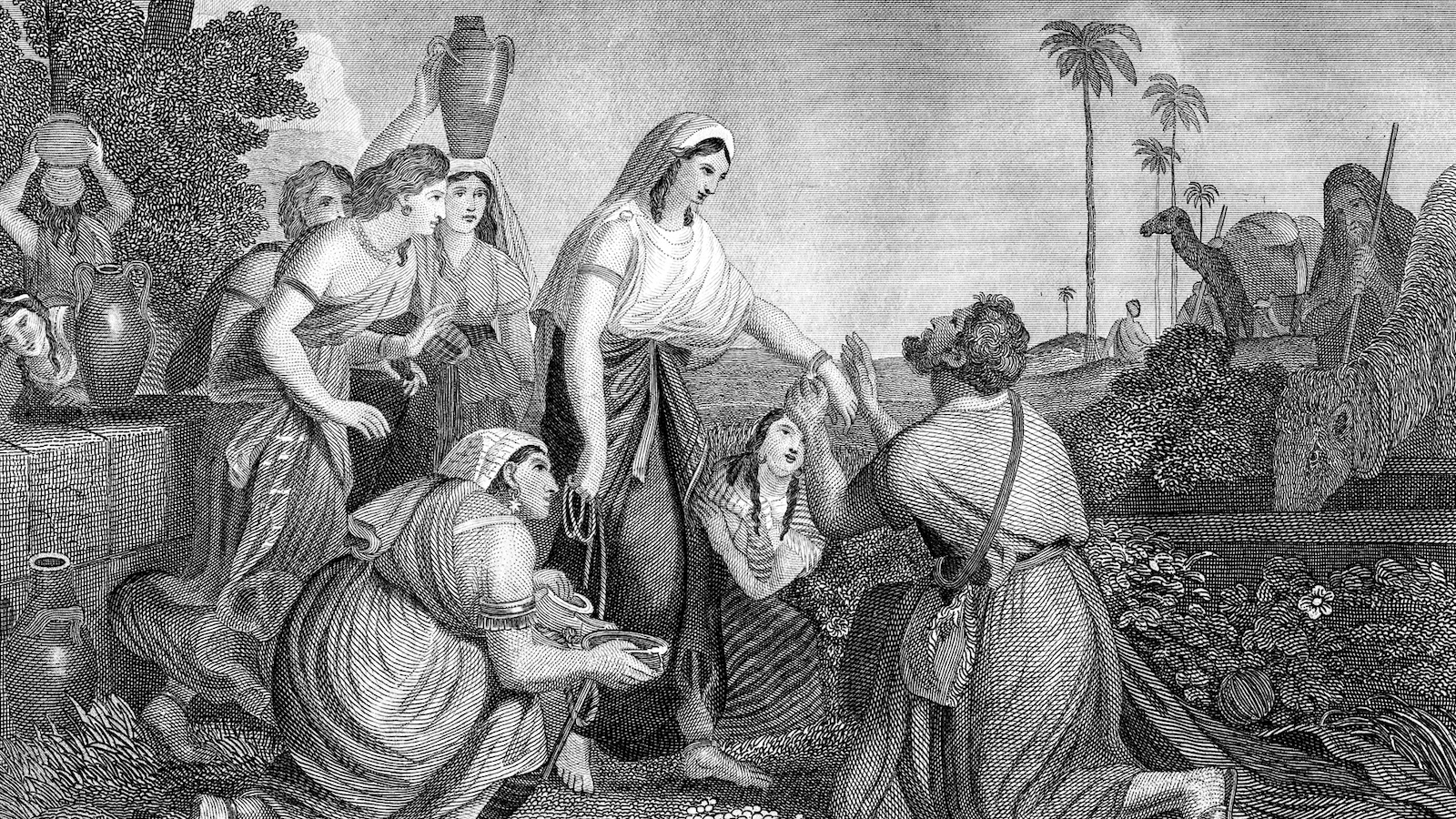Commentary on Parashat Toldot, Genesis 25:19-28:9
Parashat Toldot begins with the story of our foremother Rebecca’s difficult pregnancy. After her husband Isaac has prayed for her to conceive, she finds herself expecting twins and in enormous pain. Genesis 25:22, in the Jewish Publication Society translation, reads: “The children struggled in her womb, and she said, ‘If so, why do I exist?’ She went to inquire of God.”
Rebecca’s plea — lama zeh anochi, more literally rendered as “Why is this me?”— is enigmatic. There is no doubt Rebecca is distressed physically, but her anguish seems to extend into the spiritual. My friend and teacher Rabbanit Leah Sarna, surveying classical interpretations of this verse, observes that “[t]he Torah describes Rivkah’s pregnancy as concentric circles of crushing: the boys within her crush each other, she experiences crushing physical pain as a result of their violent activity, and her emotional suffering in response to it all crushes her will to live.”
The biblical text is famously terse. It doesn’t tell us more about how Rebecca handles her physical and existential pain. But through the creative medium of midrash, the rabbis imagine what she did next. They say she did what many of us have also done in moments of need: She sought out Jewish wisdom.

Help us keep Jewish knowledge accessible to millions of people around the world.
Your donation to My Jewish Learning fuels endless journeys of Jewish discovery. With your help, My Jewish Learning can continue to provide nonstop opportunities for learning, connection and growth.
Rashi, citing Genesis Rabbah, explains that when the verse tells us that Rebecca “went to inquire of God,” she actually went to the beit midrash (house of study) of Shem. Shem, one of Noah’s sons, along with his son Ever, appears throughout rabbinic midrashim as a prefigurative yeshiva head, leading an anachronistic house of study where the patriarchs Abraham, Isaac and Jacob are all imagined to have spent time studying Torah and Talmud.
Of course, the image of a matriarch or patriarch going to a beit midrash is incongruous: How could biblical figures, who lived centuries before the giving of the Torah, study the Talmud, which came some thousand years later? For those who take this midrash literally, this might seem the height of rabbinic arrogance: an inability to imagine an ancestral past that is different from the Judaism they created and promoted. But I find it tender: The rabbis loved Torah study so much that they could not imagine moving through life without seeking the wisdom of their foundational texts.
When, in the rabbinic imagination, Rebecca turns to the beit midrash, she gets an answer, but it is not simple and comforting. The following verse (Genesis 25:23) tells us that God said to Rebecca: “Two nations are in your womb; two separate peoples shall issue from your body. One people shall be mightier than the other, and the older shall serve the younger.” This may have given Rebecca clarity on the physical and spiritual pain that was literally residing within her body, but was it soothing? I cannot imagine that learning her two children would be locked in a fierce and intractable conflict for life would have been a comfort.
For many, the world appears to be in a constant state of chaos and upheaval, and often our inner lives are as well. When we turn to Judaism, to Torah, to our teachers, toward other sources of wisdom, we might crave comfort. Sometimes, we find it.
But sometimes, we are met not with comfort but with clarity. Rebecca’s query is not met with reassurance that everything will be okay. She is not told that her pregnancy will be easy, or that her children will be alright. She is given only truth.
We often turn to Jewish wisdom during hard moments with an expectation that it will make us feel better. But that is not what Torah, or our relationships with God, or Jewish community, is for. Our sacred texts are not here to soothe us; they are here to tell us the truth, and make us look more deeply at the truths within ourselves. Torah study, whether we do it (like the rabbis) in a beit midrash, or in our inboxes, or out in the world, offers us many gifts, but rarely simple comfort. We must be brave like Rebecca to seek clarity through Torah, and move through life with more purpose for it.



